Russia's network of influence in Europe and North America. How Russia fosters terrorist and political organisations
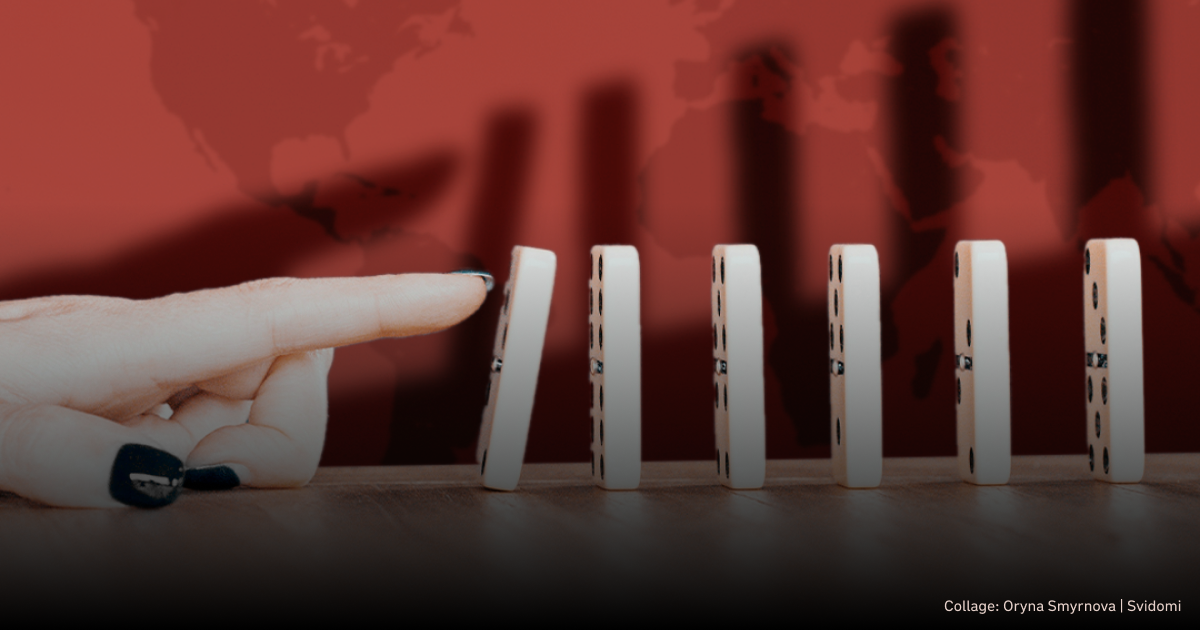
Russia manifests its aggression not only towards Ukraine and not only through military operations, as warfare is only the final form of Russian policy.
First and foremost, Russia exerts its influence through NGOs, funding parties and politicians, and training terrorists among Western citizens. The 'track record' includes the United States, Poland, Germany, Hungary, Sweden and others.
Svidomi explains how Russia has created its network of influence in Europe and North America and how dangerous it is for Ukraine and our allies.
This article was published as part of the special project 'How Russia Undermines World Order'.
Why does Russia need influence networks in the West?
In an interview with CNBS in March 2024, President of Poland Andrzej Duda said that Russia could have the military capability to attack NATO as early as 2026-27. Business Insider said Germany's Federal Intelligence Service and Lithuania's State Security Service expressed similar fears earlier. Europe expects a new war on its territory if Ukraine fails to deter Russian aggression.
This is precisely the task Russia has set itself. To achieve it, Russia needs to expand its network of influence in Europe to accomplish two things: sway public opinion in its favour and ramp up sabotage within the Euro-Atlantic bloc. Such actions weaken the ability of EU and NATO members to respond to Russian aggression.
Russia uses various instruments of influence to create tensions in Western countries: it employs ideologues, opinion leaders and radical representatives to shape public opinion in countries and promote the narratives it wants. According to a study by the European Parliament's Public Opinion Monitoring Unit (POMU), support among EU citizens for financial and military aid to Ukraine has fallen by an average of 8-9% over the past two years.
Direct sabotage and terror are the most extreme forms of Russian activity. The Economist reports that since the beginning of the year, Russians have set fire to a Ukrainian logistics company in London and attempted to sabotage its warehouses in Spain. Germany arrested two German-Russian dual nationals on suspicion of plotting attacks on American military facilities in the country. In early July, NGL.media published an investigation, carried out in cooperation with Polish, Latvian and Estonian journalists, into how Russia is recruiting local citizens and Ukrainians in these countries to carry out sabotage, vandalism and intelligence gathering on military headquarters and airfields.
These events are only a fraction of what has happened since Russia began its full-scale invasion of Ukraine.
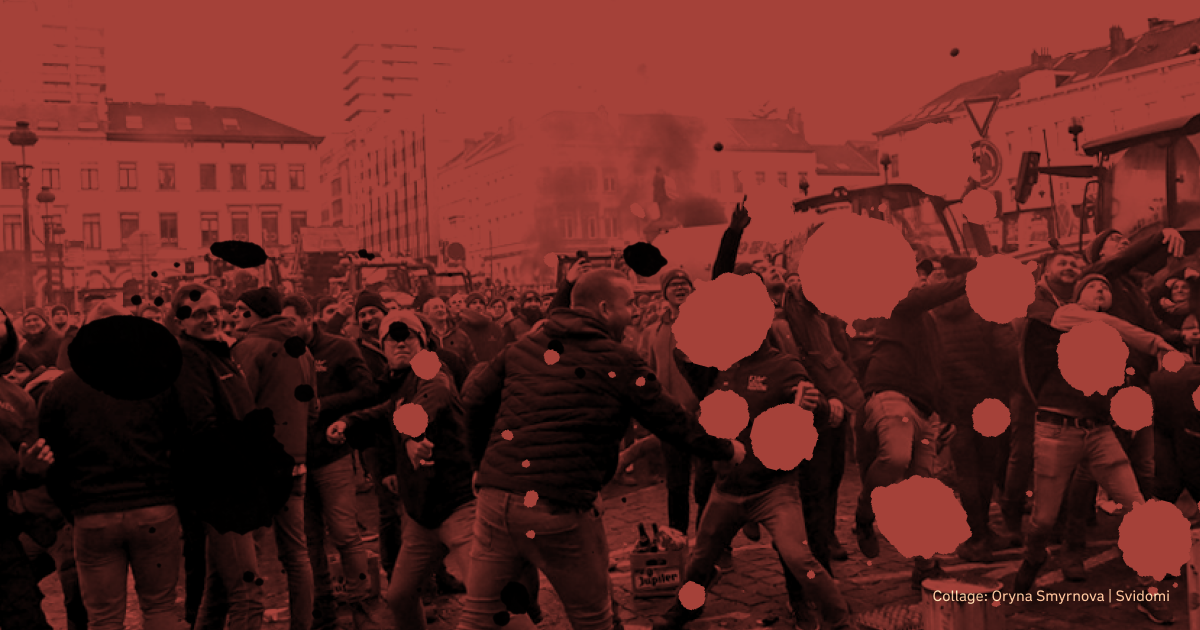
What organisations does Russia use to create networks?
Rossotrudnichestvo
The first instrument of influence for the Russian Federation was Rossotrudnichestvo (a federal agency that promotes Russia's cultural influence, works with "compatriots", and provides humanitarian aid abroad — ed.), created after the Russian-Georgian war in September 2008. This agency took over the KGB's network of Russkiy Dom (Russian House, a cultural promotion organisation — ed.) in 80 countries but now focuses on Eastern, Southern and Central Europe. This institution also operated in Ukraine, namely in Kyiv and Odesa, before the National Security and Defence Council imposed sanctions on it in 2021.
The Ukrainian Institute mentions that this agency's main tasks are to provide 'humanitarian aid', work with 'compatriots', and 'ensure Russia's presence in the world'.
In 2020, 'humanitarian aid' to the Czech Republic included ricin, a potent poison, brought into the country by the acting head of the local Rossotrudnichestvo, Andrei Konchakov, according to the Czech media outlet Respekt. He intended to assassinate Prague officials who had removed a monument to Russian general Ivan Konev from the city's streets.
Rossotrudnichestvo also works actively with its 'compatriots' not only to spread Russian narratives in Europe. It also seeks to influence geopolitics. According to the organisation's website, Yulia Gavrilova, head of the Compatriots Community of Alexandroupoli Russkiy Dom, lives and works in the Greek city of Alexandroupolis (population 70,000). She is the wife of Konstantinos Gabaeridis, an adviser to the mayor and chairman of the Association of Russian-speaking Entrepreneurs in Greece.
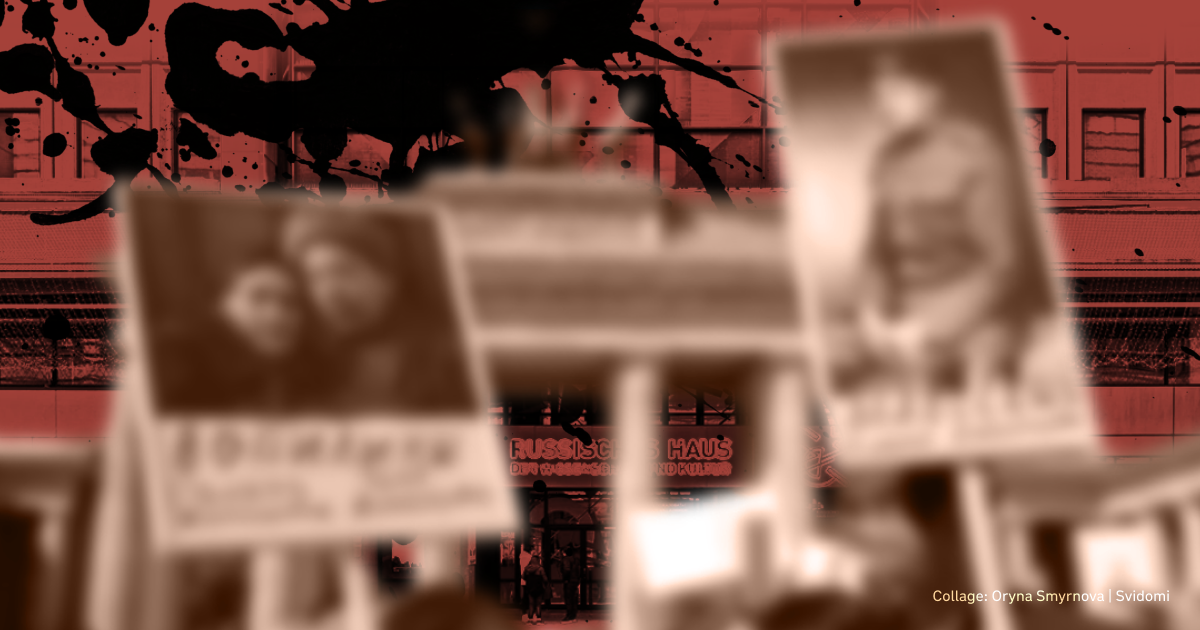
Russia's interest in this city, despite its small size, is driven by its liquefied natural gas terminal. Deutsche Welle says this terminal can replace Russia's Gazprom in Southern and Eastern European markets. The latter still uses the TurkStream gas pipeline to supply its products to countries in the region.
The Alexandroupolis terminal will also supply LNG to Ukraine and Moldova. Rossotrudnichestvo's presence in this city significantly expands Russia's space to plot new sabotage activities.
In 2023, the Danish newspaper Information published a series of articles describing several events organised by the chairman of the local Russkiy Dom, Artem Markaryan. He arranged meetings for Russian scientists with representatives of the Technical University of Denmark and got one of his employees a job there. Danish intelligence found some of the Russian-origin staff at this university to be spying and stealing green energy technology for the benefit of the Russian state intelligence service.
These countries and incidents are only part of an extensive network of Rossotrudnichestvo. Dmitry Polikanov, deputy head of the federal agency, says that over the past year and a half, the agency has operated in France, Italy, Germany, Spain, Belgium, Poland and other European countries, despite sanctions imposed by some EU member states.
The Russian Imperial Movement and the Partizan camp
Another tool used by Russia to spread its influence and destabilise Ukraine's Western partners is the Russian Imperial Movement (RIM, a Russian ultranationalist, neo-Nazi, white supremacist militant organisation operating from Russia and seeking to create a new Russian Empire — ed). Its brainchild is the Partizan military camp near St Petersburg, existing since 2002. It trains militants who, according to the Robert Lasting Institute, hold Nazi and neo-Nazi views.
The Associated Press says the US government designated the organisation as a terrorist group in 2020 because many of its graduates were actively involved in the Russian-Ukrainian war.
In addition to Ukraine, the camp's graduates have committed acts of terrorism in the United States itself. In 2021, two members of The Base (which also operates in the United Kingdom, Canada, Australia and New Zealand) pleaded guilty to planning terrorist attacks in the United States. They were also preparing plans for the violent release from prison of their associate, Dylann Roof, sentenced to death for the murder of nine members of a Black South Carolina congregation in 2015.
According to the FBI, Rinaldo Nazzaro, the head of The Base, moved to St Petersburg in 2018 and runs the organisation in collaboration with the Russian Imperial Movement.
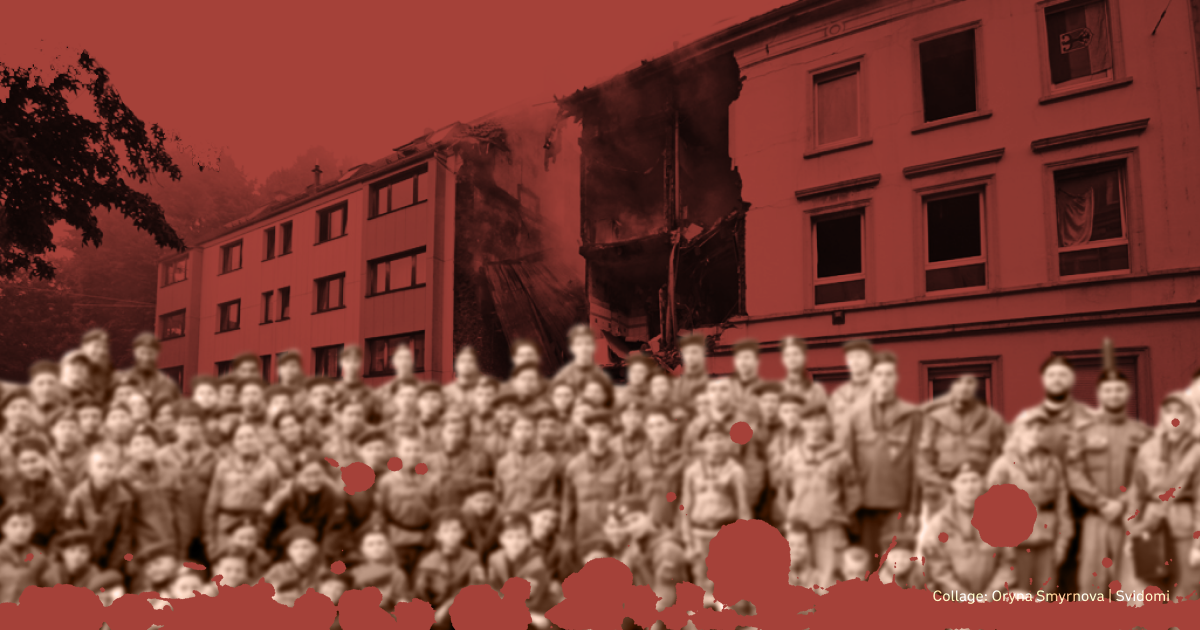
RIM is responsible for training terrorists not only in the United States. In 2017, a series of explosions took place in the Swedish city of Gothenburg (Göteborg) near the offices of the local left-wing movement. Three members of the neo-Nazi group Nordic Resistance Movement were blamed for the attack. The Swedish media outlet Expressen reported that the individuals had trained at the Partizan military camp a year before the attack. Sweden's largest newspaper, Dagens Nyheter, also noted that Stanislav Vorobyov, the founder of the Russian Imperial Movement, had personally visited Sweden before the terrorist attack in Gothenburg.
These are just some of the organisations and individuals who have committed terrorist acts in Europe and North America after being trained by Partizan. According to the German media outlet Focus, local Third Way radicals and representatives of the extreme right-wing neo-Nazi National Democratic Party of Germany were trained by Partizan in the use of small arms and explosives. Polish representatives of the right-wing neo-fascist organisation Falanga and the far-left party Zmiana (Change — ed.) also trained with them. Falanga was also spotted by European Pravda (a Ukrainian online newspaper — ed.) in the summer of 2014 when group members gathered near the Ukrainian embassy in Warsaw with the flags of the so-called Donetsk and Luhansk People's Republics. The leader of the movement, Bartosz Becker, also attended one of the separatist rallies in Donetsk and spoke in support of the so-called 'DPR'.
Working directly with ideologues and politicians and how this affects Ukraine
In February 2018, the Hungarian centre in Uzhhorod was set on fire. Deutsche Welle reported that the instigator of the fire was the late journalist Manuel Ochsenreiter. The arsonists were Poles from Falanga and Zmiana.
Ochsenreiter had repeatedly met with the ideologue of the 'Russian world' (the sphere of military, political and cultural influence of Russia ed.) Aleksandr Dugin and appeared on Russian television, where he expressed support for Russian separatist groups in the Donetsk region.
Ochsenreiter had direct links to the right-wing populist Alternative for Germany party through Markus Fronmaier, the second co-founder of the German Centre for Eurasian Studies. The Alternative for Germany is lobbying the Bundestag to cut off aid to Ukraine, and the German Centre for Eurasian Studies was responsible for the right-wing populist party's electoral promotion.
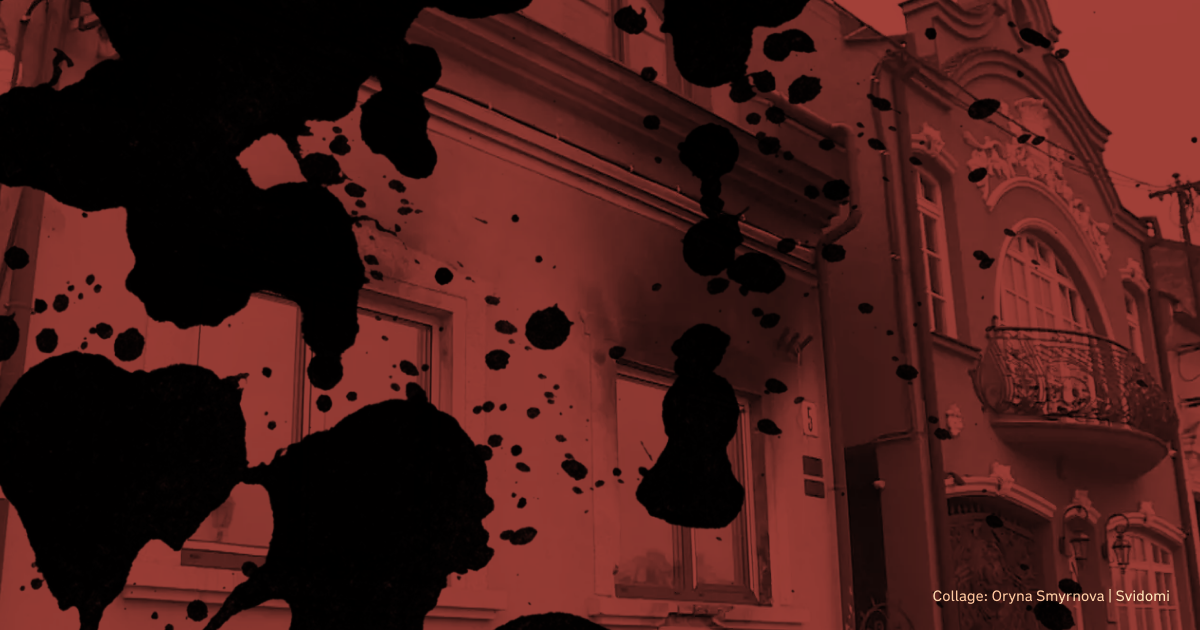
Another Kremlin agent is Polish citizen Rafał Mekler, who organised the campaign to block checkpoints on the border with Ukraine in the winter of 2023-2024. He promotes ‘useful’ chauvinist narratives in Poland, including the 'Banderite policy of Ukraine' and condemnation of the Polish government's acceptance of Ukrainian refugees at the beginning of the full-scale invasion.
Mekler is the leader of the Lublin branch of the Confederation Party, whose members he used to organise the border blockade. To ensure that the Confederation Party was involved with Russia, the following facts are worth noting: Janusz Korwin-Mikke, the founder of this party, visited Crimea, which was occupied by Russia, in 2015, as reported by RBC-Ukraine, a Ukrainian news agency.
According to InformNapalm's investigation, in 2017, the Camp of Great Poland party of the so-called 'expert on Poland in Russia' Usowski, together with the Confederation party of Corwin-Mikke, held anti-Ukrainian rallies in Poland in support of the so-called DPR and LPR. They received funding for these rallies directly from Russia, from State Duma deputy Konstantin Zatulin.
Robert Winnicki, the second leader of the Confederation Party, previously headed the All-Polish Youth, where Bartosz Becker, the leader of the pro-Russian Falanga, began his career as an 'activist'.
These two examples highlight how Russia promotes its narratives and orchestrates the media image it needs by funding individuals. They also managed to block the Polish-Ukrainian border, a critical route for Ukraine to receive military support from its allies.
In addition to these examples, there are well-known politicians directly linked to the Kremlin, such as Hungarian Prime Minister Viktor Orbán, Márton Gyöngyösi, the leader of Hungary's far-right Jobbik party, or Marian Kotleba, the leader of the Our Slovakia party, whose political movement advocates the country's withdrawal from NATO.
The New York Times reports that Kotleba and his party have also received funding from the Russian oligarch Konstantin Malofeev, who was previously linked to Igor Girkin (Strelkov) – Russian terrorist and militant responsible for organizing the armed groups of the so-called DPR and LPR in 2014 in Ukraine.
Such figures in Europe are becoming a significant obstacle to Western aid to Ukraine, which is the Kremlin's long-term goal in its war with Europe.
How Europe and North America are countering Russian influence
The US and EU have repeatedly imposed sanctions on Russian institutions and officials. But they are mostly ineffective. The Official Journal of the European Union recognises Rossotrudnichestvo as 'the main state body projecting the Kremlin's soft power and hybrid influence, including the promotion of the 'Russian World' concept'. For many years, it has acted as an umbrella organisation for a network of Russian 'compatriots' and agents of influence, funding various public diplomacy and propaganda projects, consolidating the activities of pro-Russian actors and spreading Kremlin narratives, including historical revisionism. However, Rossotrudnichestvo is still active in the EU.
The Partizan military camp continues to train dozens of combatants for the war in Ukraine. The camp no longer officially announces that it is training foreigners for fear of being investigated by national governments. However, according to posts on the centre's telegram channel, Partizan is preparing its citizens for 'World War III'.
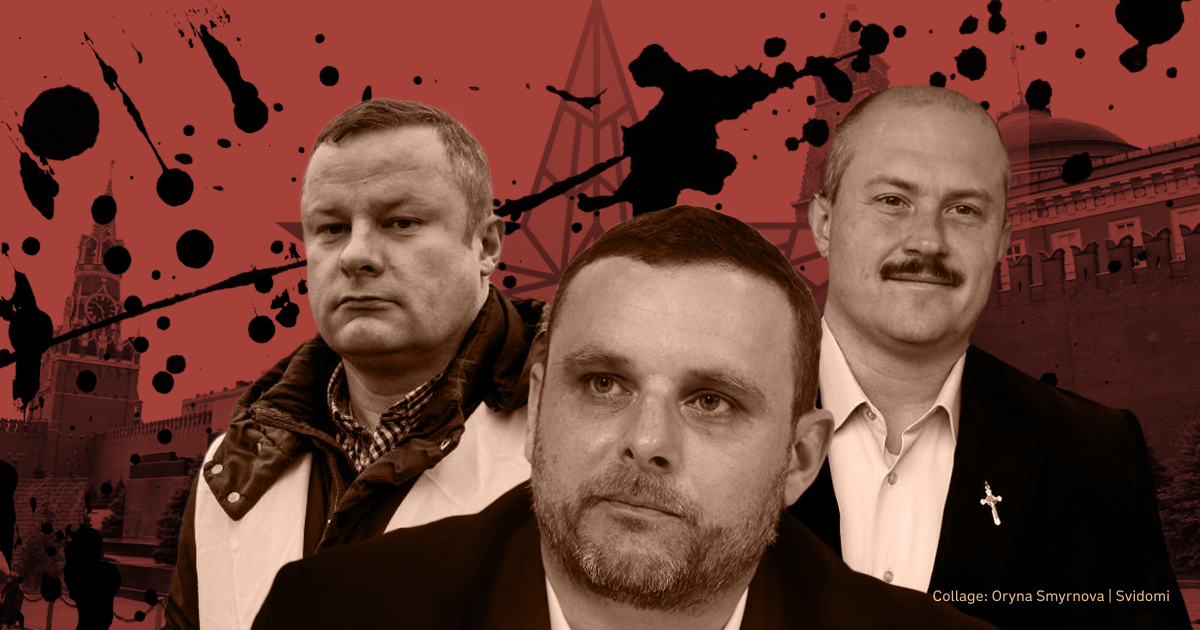
To prevent Russian-backed political activity in the EU, rules should be introduced to ban politicians who spread pro-Kremlin disinformation and propaganda and engage in political activity from running for and holding office in the EU," recommends the Institute for Innovative Governance. The institute has researched and identified over 350 lobbyists for Russia in Germany, France, and Italy.
But is it feasible? Firstly, freedom of speech is a fundamental value of the Western world. This makes it vulnerable to the spread of Russian propaganda, as it must first convince its population of the need for such measures before imposing censorship. Second, Europe and the United States already have significant problems with the effectiveness of the sanctions already in place. Polish Foreign Minister Radosław Sikorski stresses that the EU must prevent Russia from circumventing the sanctions. He notes that this has recently become a significant challenge for Euro-Atlantic institutions.
Aware of the extent of Russia's network of influence in Europe and North America, these countries need to focus not only on helping Ukraine and imposing economic sanctions on Russia. They must also purge their internal political, economic, scientific and media systems of Russian influences that have created and will continue to create obstacles to world peace. The head of NATO's military committee, Rob Bauer, warns Ukraine's Western allies that it needs to mobilize its resources to defend itself against the possible threat of Russian aggression.
Europe and North America face a difficult choice: mobilize existing resources now in the face of Russian aggression, or mobilize their populations in the event of a real Russian attack.


